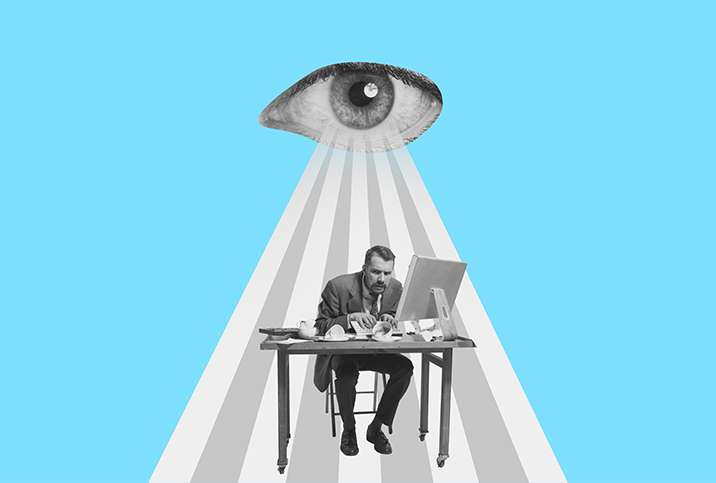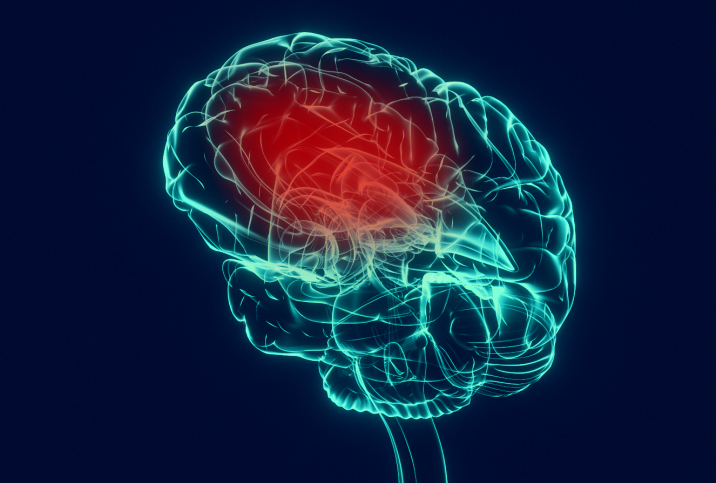The Signs and Effects of Chronic Stress

Stress is a reaction to something happening internally or externally. While the word stress is often associated with something negative, not all stress is inherently bad. Generally speaking, stress provides the motivation to take action.
However, when you are unable to cope with the amount of stress you're experiencing or the stress is chronic, there can be many negative effects.
Beyond mental and physical health, stress can significantly impact your sexual health. Chronic stress can make you susceptible to developing diabetes or hypertension, and those conditions can lead to a decreased sex drive and, for men, erectile dysfunction (ED).
Stress can affect the production of hormones in your body. To take one example, an increase in cortisol—the primary "stress hormone," which increases sugar in the bloodstream—can trigger an increased production of stress hormones. Additionally, stress can lower testosterone levels, which play an important role in your sex drive.
The most common symptoms
There are a number of different symptoms stemming from stress, and they vary from person to person. The classic telltale signs of stress are headache, tight shoulders and a sense of irritability, which occur every time you're cramming to meet a deadline.
Marni Chanoff, M.D., an integrative psychiatrist at McLean Hospital in Massachusetts, said there are common symptoms of stress. It may present as anxiety, worry, irritability, agitation or restlessness.
"Sometimes when people are stressed, they have less patience," she said. "They are not as able to be empathic or understanding with the person who they're engaged with."
In relationships, the effects of stress may result in more conflict or having a hard time empathizing with a person with whom you're in conflict. You may have little patience with co-workers, friends or family members. Perhaps actions or comments that normally wouldn't bother you leave you frustrated. Maybe a co-worker's or partner's mistake is no big deal, but because of overwhelming stress, you have less patience.
"Not only will stress impact your mood, mindset and mental health, but it also manifests physically," Chanoff explained. "Some people feel like their heart rate increases or they can feel it pounding. You can have shortness of breath [or] you can feel muscle tension throughout the body."
Stress can also manifest in your gastrointestinal tract (GI).
"Some people feel stress in their stomach," Chanoff noted. "Some people are either bloated and gassy, or on the other end of the spectrum, they can experience diarrhea."
You may find that when you feel stressed, you have stomach pain or changes in your stool. Some people lose their appetite and forget to eat, while other people eat more than normal, she added.
The risks and causes
The factors that make someone more susceptible to stress are complicated and vary from person to person, according to a research study published in 2008 in the Malaysian Journal of Medical Sciences.
"An event that causes an illness in a person may not cause illness in another person," the study reported, adding that factors found to influence someone's susceptibility to stress are genetic vulnerability, coping style, type of personality and social support.
"When we are confronted with a problem, we assess the seriousness of the problem and determine whether or not we have the resources necessary to cope with [the] problem," the study reported. "If we believe that the problem is serious and do not have the resources necessary to cope with the problem, we will perceive ourselves as being under stress."
Experiencing this kind of stress for a short period of time—perhaps you overcame a task at work and your nervous system brought you back to calmness—does not typically put you at high risk of stress-related issues. Rather, risk generally occurs when you experience stress over an extended period of time, known as chronic stress, and are unable to cope. At this point, stress becomes a significant issue and can lead to serious health risks.
Chronic stress can be caused by factors out of your individual control, such as political issues. Chanoff listed the need to feel secure and safe—both physically and financially—and not feeling isolated as significant factors that can affect your stress level. However, issues such as climate change, legislation that takes away your human rights or a global pandemic are just as much a threat to your safety even though they are mostly out of your individual control.
These threats are becoming more of an issue in modern times, she added.
Perhaps more than any one factor, work can be a major source of chronic stress.
"Countries renowned for their long working hours know this well enough," the 2008 research reported. "Japan and China each have a word for death by overwork—karoshi and guolaosi, respectively. Both Japan and Korea recognize suicide as an official and compensatable work-related condition."
How to diagnose stress
Stress cannot be diagnosed in the same way an illness or medical condition is diagnosed, Chanoff said. Stress is a situational response. While there isn't an official diagnosis of stress, you can work with your healthcare provider to find coping strategies and relieve the symptoms you are experiencing as a result of stress. They may recommend you to a specialist for further treatment.
"If you think that you have signs of stress, it's time to examine the stressors in your life and your resiliency, that is, your ability to bounce back," Chanoff said. "Some people can come in and they have a million stressors and they're OK. Other people may have one or two and they're having a really hard time coping."
Chanoff explained that your healthcare provider can take into account what is happening in your life to determine if these day-to-day issues are causing your stress.
"If a person [says], 'Everything in my life is fine, sure I'm a little stressed, but I have no reason to believe I'd be feeling this terribly,' then it's hard to diagnose that as a stress response," Chanoff noted, adding that it's important to try to detail your stressors, perhaps keeping track in a journal or diary.
What happens if stress goes untreated?
According to the research published in 2008, short-term stress can boost your immune system because it prepares your body to overcome a challenge. However, long-term chronic stress has been linked to several health conditions and issues.
According to the Stress in America survey published in October 2022 by the American Psychological Association (APA), 75 percent of Americans reported their health has been impacted by stress in the past month. Their symptoms included headaches, feeling nervous or anxious, and/or feeling sad and depressed. The survey also indicated stress led to poor sleep quality, feeling overwhelmed, constant worrying, and the use of cigarettes, alcohol or drugs to relax.
A significant concern with chronic stress is the impact on your immune system, as it can weaken the function of your immune response.
"Several studies have shown that chronic stress exerts a general immunosuppressive effect that suppresses or withholds the body's ability to initiate a prompt, efficient immune reaction," the 2008 study revealed. "This weakening of immune function is thought to be associated with general strain on the various body parts associated with the production and maintenance of the immune system. For example, atrophy of the thymus or shrinking of the thymus results in its inability to produce T cells or the hormones needed to stimulate them."
T cells are a type of white blood cells of the immune system and play a major role in the adaptive immune response.
In addition to weakening your immune system, the American Psychological Association stated: "[Long-term activation of the stress response system] can put you at increased risk for a variety of physical and mental health problems, including anxiety, depression, digestive issues, headaches, muscle tension and pain, heart disease, heart attack, high blood pressure, stroke, sleep problems…and memory and concentration impairment."
Headaches, shoulder pain and lower back pain can all be a result of long-term stress because it puts your muscles in a constant state of guardedness, according to the APA.
Chronic stress can also lead to long-term problems for the heart and blood vessels.
"The consistent and ongoing increase in heart rate, and the elevated levels of stress hormones and of blood pressure, can take a toll on the body. This long-term, ongoing stress can increase the risk for hypertension, heart attack or stroke," the APA stated.
A study published in 2020 in the Journal of Psychosomatic Research surveyed 557 participants and reported that job strain was associated with an increased risk of heart diseases in middle-aged women and in men ages 50 years and older.
Chronic stress can even contribute to life-threatening diseases.
"The morbidity and mortality due to stress-related illness are alarming," according to the 2008 research study. "Emotional stress is a major contributing factor to the six leading causes of death in the United States: cancer, coronary heart disease, accidental injuries, respiratory disorders, cirrhosis of the liver and suicide."
In addition to physical health complications, long-term, untreated stress can have a significant impact on your mental health. Chronic stress is often associated with anxiety, depression and sleep issues.


















